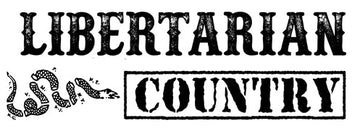The assassination of Charlie Kirk should have been a rare moment of collective mourning and reflection for America. A man was murdered in front of his wife and children—not for a crime, but for his ideas. In a society that values liberty, such an act should be universally condemned. Yet what unfolded online revealed the fractures in our nation’s soul.
Across social media, we witnessed not unity but division; not empathy but tribalism. The reactions from different corners of the internet—progressive, conservative, and professional—offered a glimpse into how far we’ve drifted from decency, and how desperately we need to rediscover our moral compass.
The Progressive Response: Compassion Lost in the Noise
When the news broke, one might have expected the side that champions “kindness,” inclusion, and empathy to lead with humanity. And to their credit, some did. Voices like Bernie Sanders and Bill Maher immediately condemned the violence, calling it what it was: a moral failure and an assault on democracy’s core principle—the right to speak and live freely.
But these voices were drowned out by a louder, darker chorus. Many online progressives mocked Kirk’s death, some even celebrating it with memes and laughter. Their reaction reinforced the very caricature their critics accuse them of being—self-righteous, intolerant, and cruel in the name of virtue.
Instead of standing against political violence, many reveled in it. The hypocrisy was glaring: the same people who demand compassion and sensitivity turned heartless when faced with an ideological opponent’s death. It was an opportunity squandered—a chance to prove that tolerance truly means tolerance, even for those you despise.
The Conservative Response: Emotion Over Principle
Conservatives, too, stumbled in the aftermath. Known for the mantra “facts don’t care about your feelings,” many on the right were understandably furious after seeing the mockery that followed Kirk’s murder. A man was killed in front of his family, and strangers online turned it into a spectacle.
That outrage, however, gave way to retaliation. Some conservatives began calling out employers of those celebrating his death, demanding that they be fired—ironically engaging in the same cancel culture they’ve long condemned.
It’s understandable to feel rage in the face of cruelty, but the moral high ground cannot be taken by mirroring the tactics of one’s enemies. Conservatives had a chance to demonstrate restraint and principle, to say, “We don’t silence others, even when they cheer our pain.” Instead, emotion won over discipline.
The Professionals: Trust Betrayed
The most alarming behavior came from professionals—teachers, doctors, lawyers, and others in positions of trust—who mocked Kirk’s death publicly. Their words didn’t just stain their reputations; they undermined faith in the very institutions that depend on impartiality and decency.
For millions of conservative Americans, seeing a doctor or teacher joke about the assassination of someone who shares their values was chilling. It communicated a dangerous subtext: if you think like him, you might not be safe with us either.
Even if these individuals thought they were venting political frustration, they instead appeared cruel, unprofessional, and biased. Such behavior deepens the divide and makes every institution—from schools to hospitals—feel like a battlefield.
A Hat Tip to the Voices of Decency
Amid the chaos, not everyone failed the test of humanity.
A hat tip to the conservatives who chose peace. Across the world, candlelight vigils were held in Charlie’s honor without retaliation or riots. No buildings burned, no mobs formed—just grief, solidarity, and quiet resolve. They showed that justice and strength need not wear the mask of vengeance.
And a hat tip as well to the progressives who spoke out against the murder—unequivocally. Those who said, “This was wrong,” without adding the dreaded “but” reminded us that moral clarity still exists. It takes courage to stand against your own tribe in moments like these, and their voices deserve respect.
These examples of dignity amid division prove that not all is lost. They remind us that principles can survive even in a culture that thrives on outrage.
What We Could Have Done Better
When tragedy strikes, our response reveals who we truly are. Instead of retreating into camps of anger and mockery, we should have united around one simple truth: a human being was killed for his beliefs, and that is wrong—no qualifications, no exceptions.
The lesson here is not about Charlie Kirk alone, but about what we are becoming. Disagreement is part of democracy; dehumanization is not. Violence must never be normalized as an acceptable response to ideas.
If we cannot say, “That was terrible, and it’s a damn shame,” without hesitation, then we have abandoned the moral framework that keeps civilization intact. The death of one man should not be the death of empathy itself.
Final Thoughts
The reactions to Charlie Kirk’s assassination revealed the fault lines of our time—tribalism, moral inconsistency, and the loss of basic human compassion. Yet within that darkness, there were flickers of light: progressives who condemned the act, conservatives who mourned peacefully, and everyday Americans who refused to gloat or rage.
If there is to be healing, it will begin with those voices—the ones who refused to become monsters while staring into the abyss.



